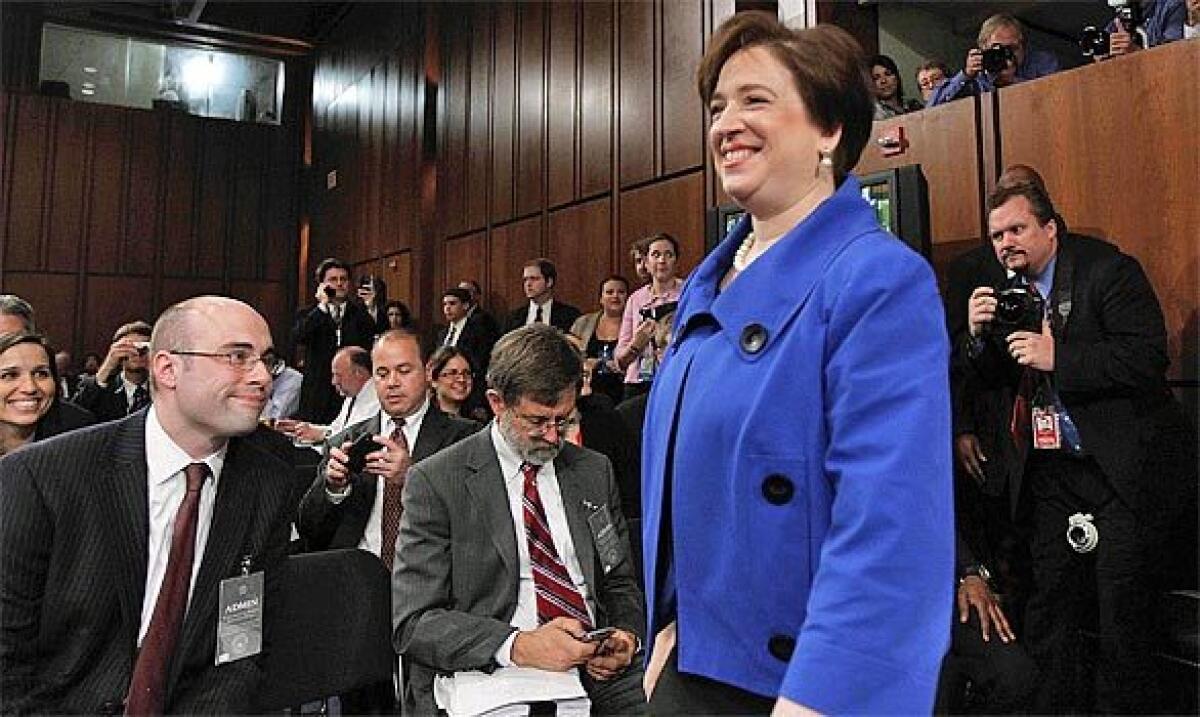Editorial: Defendants convicted by non-unanimous juries should get new trials

In April, the Supreme Court ruled that the Constitution requires that a jury must be unanimous in convicting a defendant of a serious crime. A lot of Americans — including those who have seen the classic film “12 Angry Men,” in which a lone holdout convinces other jurors to acquit a defendant — probably thought that was already the rule everywhere. But two states, Louisiana and Oregon, had allowed convictions by a non-unanimous jury, as had the territory of Puerto Rico.
That changed when the court ruled in favor of Evangelisto Ramos, who had been convicted of murdering a woman in Louisiana by a 10-2 vote of a state jury. On Wednesday, a lawyer for another Louisiana man convicted by a non-unanimous jury asked the court to make the Ramos decision retroactive. It must do so if it doesn’t want to tarnish its own legacy.
The Ramos decision was a landmark case, displacing a fractured 1972 decision in which the court had seemed to suggest that the Constitution required conviction by a unanimous jury in federal trials but not state trials.
Writing for the court in April, Justice Neil M. Gorsuch explained that as a matter of history the right to a jury trial guaranteed by the 6th Amendment was understood to require a unanimous vote for conviction. That makes sense: It’s easier for a jury to ignore the requirement for guilt beyond a reasonable doubt if a majority of the panel can ignore objections by one or two members.
Gorsuch also noted that when Louisiana adopted a provision for non-unanimous juries in 1898, one objective was to make it possible for Black jurors to be outvoted. That history is sadly relevant to the case that was argued Wednesday. Thedrick Edwards, a Black man, was convicted of armed robbery, kidnapping and rape by a jury that contained only one Black juror — who voted for acquittal on all of the charges.
You would think that Edwards would be automatically entitled to a new trial after the court’s decision in April. But under the court’s precedents, decisions establishing new rules — even those rooted in the Constitution — aren’t generally retroactive in cases like this one.
However, the court has said that decisions involving new procedural rules can be applied retroactively if they involve “the fundamental fairness and accuracy of the criminal proceeding.” André R. Bélanger, the lawyer for Edwards, told the justices that they could decide that the Ramos decision involved just such a “watershed rule.”
Alternatively, Bélanger said, the court could decide that the Ramos decision didn’t announce a new rule but restored the “full measure” of the 6th Amendment. Either way, he said, the Ramos decision should apply retroactively.
Bélanger also made the case for his client in simpler terms. He asked: “Why should the 6th Amendment mean something less to Mr. Edwards” than to other defendants?
Some justices wondered about the number of new trials that might be necessary if Ramos were applied retroactively. (Edwards’ lawyer said that the maximum number in Louisiana would be 1,600 and that the criminal justice system could handle the burden.) But justice shouldn’t be a numbers game.
As Justice Elena Kagan noted, the court in the Ramos case concluded that “if you haven’t been convicted by a unanimous jury, you really haven’t been convicted at all.” But defendants such as Edwards stand convicted despite that decision. That is fundamentally unfair.
More to Read
A cure for the common opinion
Get thought-provoking perspectives with our weekly newsletter.
You may occasionally receive promotional content from the Los Angeles Times.










